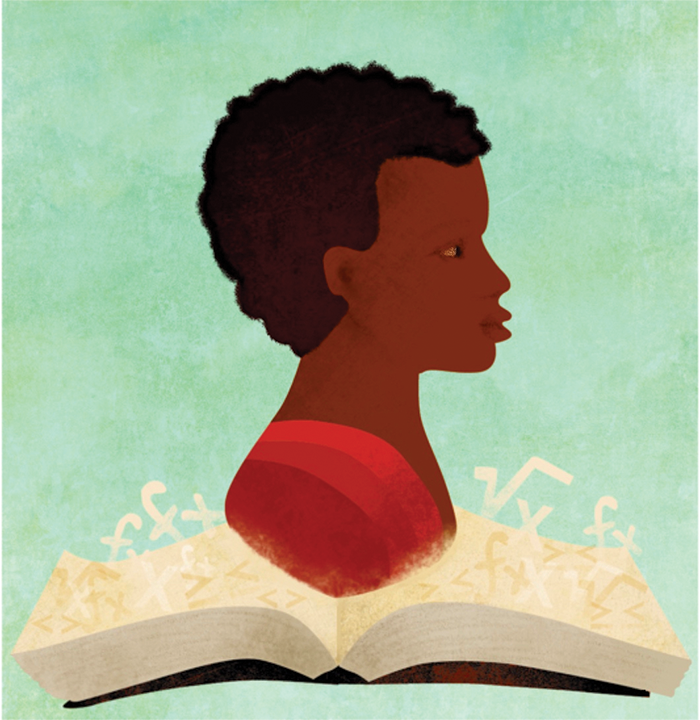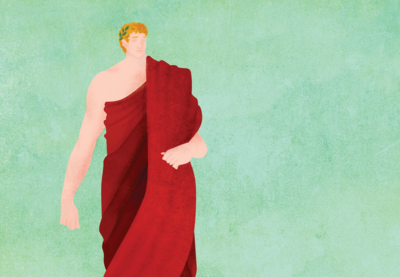I have taught ancient Greek and Latin, collectively known as classics, for most of my adult life. When I started studying Latin in seventh grade, I bought into the value of classics promoted in pamphlets from the American Classical League (ACL)—as the demarcation between what was worth knowing and what wasn’t worth even acknowledging.
Even today, a tie to the classical world often provides an instant sense of legitimacy, context and greatness. There’s a reason why, when President Donald Trump wanted to “make federal buildings beautiful again,” he exhorted architects to design buildings in the style of ancient Greek temples.
But there are real consequences to positioning ancient Greece and Rome as the foundation of “Western Civilization,” as the unquestioned standard of quality for everything from literature to sculpture to architecture—especially when “Western Civilization” is aligned with whiteness. In schools, the glorification of classics and its artificial linkage to whiteness is a toxic combination.
Maintaining Hostile Spaces
There is a centuries-long tradition of white Americans abusing classics to justify enslavement and, by extension, to promulgate anti-Black racism. This is part of a history of intentional, overt white supremacy within classical education.
Even now, as school districts and departments of education challenge the ways slavery is taught, classics instruction too often supports a sanitized, inaccurate version of slavery, one that relies on the same tropes used by Southern enslavers and Lost Cause Confederates.
One textbook, for example, unquestioningly reproduces the myth of the benevolent enslaver. Students read that when Davus is sold at auction, “[H]e was filled with fear and doubt as to what might happen to him. But he needn’t have worried. Old Titus proved to be the kindest of masters.”
A discussion question again reduces systemic oppression to an interpersonal matter when students must imagine themselves as enslavers: “If you were a Roman slave owner, would you use strict discipline or relative kindness to manage your slaves? Why?”
A question from the 2015 National Latin Exam (NLE) required students to select an adjective to describe a person who says to his father, “The slave is valuable. Sell the slave and keep the money.” The NLE is taken by over 125,000 students annually. The answer to the question was “practical.”
The problem is pervasive. As late as 2019, events held under the National Junior Classical League (NJCL) brand featured fundraising auctions, in which students posing as enslaved people were “sold” to the highest bidder. The NLE and NJCL are not rogue organizations; they are part of the American Classical League, the professional organization for teachers of Greek and Latin languages, literatures and cultures. Recently, ACL acknowledged that it “has been involved in, perpetuated, and tolerated acts of racism and intolerance within [the] organization.”
Bethany Hucks, a Black classicist, explained the impact: “It requires the descendants of enslaved people to talk with white kids and teachers as though this kind of thing didn’t directly affect our families through violence for centuries until the present day.”
Today, high school Latin classrooms are overwhelmingly white, even in schools that are otherwise diverse. One of the few sources of data about high school classics, the College Board, reveals that only 3.62% of AP Latin Exam test-takers in the last decade were Black. It’s unclear whether this lack of diversity explains how the field has maintained racist ideas and practices for so long or whether the hostile spaces created by racist policies and practices explain the overwhelming whiteness of the field.
Whitewashing the Classics Curriculum
In 1933, historian Carter G. Woodson wrote that the education system “dismisses the Negro as a nonentity” and noted, “[Black students are] taught to admire the Hebrew, the Greek, the Latin and the Teuton and to despise the African.”
Classics is often ground zero for the positioning of Europe as the pinnacle of human achievement. Although ancient Rome encompassed parts of Africa and the Middle East, in textbooks, the ancient Romans are often all white. Even ancient Greco-Roman temples and statues are shown as white, although the marble would have been painted vibrant colors. Today, classics curricula still elevate whiteness and devalue contributions to American culture that originate outside of Europe.
“Whenever I learn about the ‘history of medicine,’ I learn that the Greeks and Romans invented sanitation practices,” said Queen McKee, an undergraduate at Wake Forest University. “[And] the Egyptians and Babylonians did nothing to further the progress of medicine aside from herbal remedies. ... I learn that Hippocrates invented the standard of medical care—the oath that everyone takes to ensure proper medical care—and no one else. But that’s not true. ... I know that my ancestors and many people of color have made technological advancements, discoveries and significant contributions to the field of medicine.”
Across education, curriculum signals the superiority of knowledge from ancient Greece and Rome. In math classes, for example, Euclid and Pythagoras figure prominently, while contributions from Babylonia, Egypt and Arab-Islamic cultures are often invisible.
An uncritical veneration of a white classical world has a foothold in K-12 schools, where ancient Greeks and Romans are protagonists across the curriculum. In the humanities, this focus influences what history is taught and which texts are viewed as scholarly or rigorous enough to be worthwhile.

“Traditional humanities curriculum associates multiculturalism with modernity ... as if before we had the modern world, we had a white world,” said Henry Cody Miller, assistant professor of English education at SUNY Brockport and TT advisor. As a result, he explained, “works like Gilgamesh are positioned as the start of the constructed West.”
Furthermore, according to Miller, “most English curriculum doesn’t even include ancient writers from Africa or Asia.” Instead, students are taught that “The Odyssey has ‘universal’ themes.” Chinua Achebe spoke to this phenomenon in 1974: “In the nature of things the work of a Western writer is automatically informed by universality. It is only others who must strain to achieve it.”
Beyond the Classroom
Those framings have a real-world impact. Curtis Dozier, an assistant professor of Greek and Roman studies at Vassar College, directs Pharos, a project that documents the ways classics is deployed by white supremacists online.
“The civilizations of ancient Greece and Rome have always been attractive to European nationalist and racist movements, and in more recent years have been adopted by other so-called alt-right groups,” the project’s website explains. Those who have historically deployed and exploited classics to justify white dominance have included American enslavers, Hitler and Mussolini, and members of modern white identity groups.
“The white supremacists I document on Pharos,” Dozier said, “turn to Greco-Roman antiquity for validation of many of their political views.”
The problem for educators, as Dozier explained, is that these views “all depend on the widespread assumption that Greco-Roman antiquity is admirable, foundational and refined. Thus any presentation that promotes uncritical admiration for the ancient world, by presenting it as a source of ‘timeless’ models and wisdom, has the potential to be complicit in white supremacy.”
Cassie Miller, a senior research analyst at the Southern Poverty Law Center, said the use of classical imagery is “common in white supremacist propaganda.”
“For example,” she explained, “American Identity Movement, a white nationalist group that formerly used the name Identity Evropa, has used images of classical sculptures on their flyers along with phrases like ‘Protect Your Heritage’ and ‘Our Future Belongs to Us.’
“In 2018, they concluded their first national conference by hosting a demonstration at the Parthenon replica in Nashville, where participants held a banner that read ‘European Roots, American Greatness.’”
This connection to classics, Miller said, “helps legitimize white nationalist goals: They are, they claim, the inheritors of a culture passed down for centuries that deserves to be preserved and protected.”
Given the ways classics has been leveraged to legitimize white supremacy in our communities, it is imperative that educators consider how they present this content in their classrooms.
A Critical Approach to Classics
There is a cost to an uncritical teaching of classics. Students of color can receive an education that amounts to intellectual abuse and betrayal, while white students end up with a sense of inflated dominance.
Educators can interrupt this harm by refusing to teach classical content through a Eurocentric lens. They can expand their learning and teaching about what constitutes the “classical world.” They can push back against textbooks or curricula that frame classics as a matter of European heritage. And they can teach students to recognize—and challenge—these characterizations for themselves.
Ancient Greece and Rome were not monolithic in terms of culture, and their geography extended outside of Europe. Students benefit from a broader conception of classics that challenges assumptions about Eurocentrism.
Joshua Johnson, a Black classics major at Cornell University, said that he believes current classical education encourages students to think of non-Greek or non-Roman inhabitants of the classical world as uncivilized, “just like the Greeks and Romans did.”
“I was truly excited when I first encountered a version of classics that moved away from Eurocentric dominance and gave voice to Afro-Asiatic contributions to the ancient classical world,” he said.
College should not be the first place students encounter a balanced, critical approach to history and human achievement more generally. Teaching classics ethically, however, involves more than adding “non-European” content to a Eurocentric curriculum as a footnote. It involves presenting a more expansive view to begin with—decentering ancient Greece and Rome to stress that they were one part of the ancient world, not the ancient world; disrupting the idea that Europe has a monopoly on civilization and progress; and legitimizing sources of knowledge and achievement outside of Europe. Teachers can also expand the artificially demarcated boundaries of a European classical world in terms of geography, language and culture.
But educators can’t just rethink content. We also need to teach students to be critical consumers of what they’re learning beyond our classes, where students often learn about the influence of Greco-Roman antiquity on the United States as indisputably and exclusively positive.
This is the idea of classics presented by the National Junior Classical League, which seeks “to impart an understanding of the debt of our own culture to that of Classical antiquity.” It does so, as its constitution details, to help students “pattern our citizenship in respect to family, school and nation after the best examples of classical civilizations.”
So students learn about the classical roots of American government without learning about the use of classics to justify the institution of slavery. They learn about democracy in Athens but nothing of how the founders’ specious establishment of ancient Greece and Rome as the cultural forebears of American identity worked to erase the Indigenous nations already established on this land.
Students deserve to know that the version of classics too often taught in today’s schools is essentially the same as the one crafted by white Americans over centuries to justify racist claims of cultural and intellectual superiority. Educators cannot convey this representation as neutral.
Of course, no one is saying that we should not teach about ancient Greece and Rome or that classics should not play a role in students’ education. But it’s our responsibility to provide students ethical encounters with history. This involves recognizing the ways Greco-Roman antiquity has been exploited to establish and maintain white supremacy, naming that exploitation and interrupting it.
